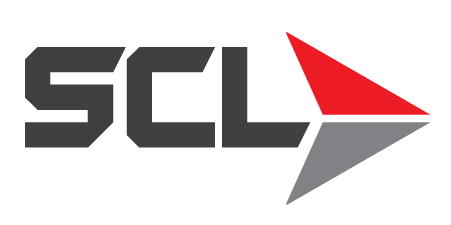Choosing a Less Expensive Lubricant Will Not Save You Money

Less Expensive Lubricant
How Does Oil Actually Affect Your Bottom Line?
With the ever increasing cost of running a business, companies will do anything to increase savings to their bottom line. When the cost of lubricants goes up – and it will – fleet managers often think that by changing their oil provider or by switching to a less expensive lubricant they will be saving money. At SCL, we are currently experiencing our 3rd round of price increases on finished lubricants for 2018, outlined in the June 28th Expert Insight article, Round 3 of Lubricant Price Increase Set for July/August of 2018. With this triple financial hit, fleet managers are looking for cost-savings solutions, but switching to a less expensive oil may not be the answer.
The Cost of Oil
The cost of oil accounts for roughly 1% of total fleet operating costs. When companies have internal initiatives to save money, they may choose to go with a cheaper lubricant product but end up seeing an increase in their cost of equipment maintenance fees, mechanical issues, increased labor costs, and truck down time. The quick switch isn’t always the best answer. Below we outline the major expenses that a company faces when operating a fleet, and why investing in partnership with your lubricant distributor versus switching to a less expensive lubricant can assist you in decreasing costs elsewhere.
Fleet Depreciation
The depreciation of an asset such as a truck is a company’s number one TCO expense. Right out the gate, prioritizing low acquisition costs will minimize depreciation over time, assure a higher resale value and reduce lifecycle costs. When building your fleet, consider negotiating price based on delivery fees, retail incentives, and volume discounts. According to Fleet Financial, “Start negotiations early in the model year to get the best opportunity for savings – receiving the greatest incentives for the vehicle models that they wish to move. Savvy fleet managers employ lifecycle principles to determine the best deal, using reliable residual value projections from automotive industry resources such as ALG, Black Book, and others.”
The Cost of Fuel
The cost of fuel is ultimately going to gauge your bottom line far more than incremental increases in lubricant prices. Older vehicles and trucks will generally use more fuel than newer models, so besides swapping out the old for the new, which may not be possible, other ways to offset the cost of fuel can be achieved via properly inflating tires, using high quality lubricants, extending drain intervals, driving at or below the speed limit, vehicle weight reduction, minimal idling, coasting to stops versus hard breaking, using cruise control, and cleaning fuel injection systems. Implementing fleet fuel card programs can also be beneficial to managing fuel usage by capturing mileage and fuel usage patterns to them make necessary adjustments. According to Fleet Financial, “Fuel is often the second largest variable expense (after depreciation) faced by fleet managers.”
The Cost of Driver Expenses
Another significant expense in your overall operating budget is the cost of paying your drivers. When you consider hourly labor plus training, insurance, taxes, benefits, certifications and additional associated payroll expenses, employee costs can far exceed the cost of your fleet’s lubricant needs.
The Bottom Line on Choosing a Less Expensive Lubricant
When it comes to the continued increase of lubricant products based primarily on a rise in the cost of raw materials, a quick switch to a new lubricant provider or less expensive product isn’t always the best answer. By partnering with an oil distributor such as SCL, you can be strategic about cost savings without compromising the integrity and safety of your fleet. At SCL we can support you in finding volume discounts to increase your profit margin as well as finding ways to extend drain intervals, optimize engine performance, and monitor fluid usage. The oil that you use to run your most valuable equipment and engines is a tool. In the same sense that you want the best equipment for a job, you want the best products in that equipment to ensure optimal performance, and you want a solid partner to support you in weathering the inevitable burden of future price increases. We’re here to support you in making a plan that works for your fleet needs as well as your bottom line.
Contact an SCL Consultant Today
In a wide range of industrial sectors, SCL is committed to being the number one logistics and solutions provider for the products that protect and optimize the machines that keep our country moving. We pride ourselves on remaining at the forefront of industry trends and technological innovations, and as the market continues to evolve, we are committed to providing extensive product and industry knowledge and total performance satisfaction for our customers. For information on how we can assist your fleet in choosing the optimal products at a competitive price, contact an SCL consultant today.
